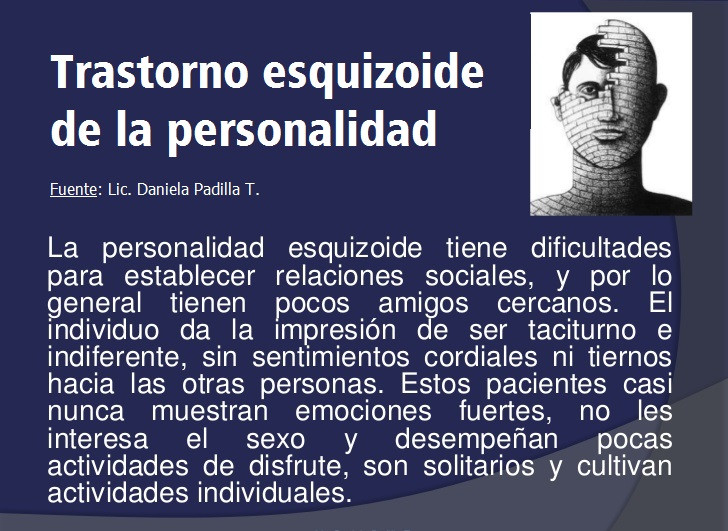
He schizoid disorder It belongs to the so-called “Group A” (rare or eccentric) personality disorders, and is a rare condition in which people avoid social activities and interaction with other individuals.
People with this pathology They often appear strange or peculiar, and are often distant and indifferent to social relationships.. They are characterized by preferring solitary activities and rarely expressing strong emotions. Although schizoid personality disorder sounds similar to schizophrenia, we are dealing with two very different disorders.

What are personality disorders
Individuals with personality disorders display long-standing patterns of thinking and behavior that differ from what society considers normal. The inflexibility of their personality can cause distress, and can also interfere with different areas of the person’s life, including social and work functioning. People with personality disorders They often have poor coping skills and difficulty forming healthy relationships..
Unlike people who suffer from anxiety disorders, who know they have a problem but are unable to control it, people with personality disorders are generally unaware of the problem they suffer from and often think that they have no problem. Because they do not know they have a disorder, they do not usually seek help to treat it.
Symptoms of Schizoid Personality Disorder
The symptomatology of Schizoid Personality Disorder It is usually characterized by social isolation and avoidance of social activities and interpersonal relationships. These people usually organize their lives to avoid contact with other people. Many never marry or may continue to live with their parents into adulthood.
Others common traits of people with this disorder are the following:
Causes of Schizoid Personality Disorder
Little is known about the causes of Schizoid Personality Disorder, but It seems that both genetic and environmental factors play an important role in this disorder..
Environment and genetics
On the one hand, many mental health professionals speculate that the absence of love and affection from parents during childhood contributes to the development of the pathology, but the high presence of the disorder in families with a member who suffers from schizophrenia suggests that it may have a remarkable hereditary factor.
Treatment of Schizoid Personality Disorder
As has been mentioned, People who suffer from this disorder rarely seek help from a professional.. Furthermore, treatment is challenging for the psychotherapist due to the patient’s difficulty in establishing relationships. This is usually solved when the therapist shows some distance from him.
Psychotherapy and pharmacological support
This treatment combines psychotherapy with the administration of drugs, generally antipsychotics such as Risperidone or Olanzapine. In cases where the disorder presents comorbidity with disorders such as depression or anxiety, antidepressants or anxiolytics are also usually administered.
Learning social skills
Since these individuals have difficulty learning social patterns quickly, They need to learn specific social skillsfor example, explaining some behaviors that could be seen as rude or rude. The psychotherapist can influence so that the patient learns how he distorts his thoughts or perceptions, in addition to re-educating him so that he acquires more adaptive ways of responding and relating.
If the disorder is mild or moderate, it may improve quickly. However, in more delicate and severe cases, the patient may have greater difficulty working and living independently. Treatment focuses on improving coping skills, as well as improving social interaction, communication, and self-esteem.








